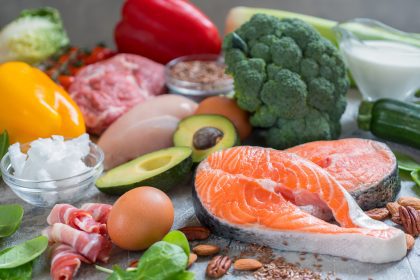Ground-breaking research has unveiled an unexpected ally in the fight against head and neck cancer – your morning cup of coffee. A comprehensive analysis published in the journal Cancer has revealed that certain daily beverage choices might significantly reduce the risk of developing these life-threatening conditions. The findings have captured the attention of both medical professionals and health enthusiasts worldwide.
Understanding the scope
This extensive study examined more than 9,500 head and neck cancer cases alongside 15,700 controls, making it one of the most comprehensive investigations into the relationship between beverage consumption and cancer risk. The research focused on cancers affecting the mouth, throat, and voice box, conditions that impact countless lives globally.
The coffee connection
Perhaps the most striking discovery centers around caffeinated coffee consumption. The research suggests that drinking more than four cups of caffeinated coffee daily could provide significant protection against various forms of head and neck cancer, including oral cavity and oropharyngeal cancers. This finding adds another layer to coffee’s already impressive list of potential health benefits.
Decaf’s surprising role
Even decaffeinated coffee showed promising results, though in different quantities. The study found that consuming between zero and one cup of decaffeinated coffee daily correlated with a lower risk of oral cavity cancer, suggesting that coffee’s cancer-fighting properties might extend beyond its caffeine content.
The tea paradox
The relationship between tea consumption and cancer risk presents a more complex picture. While moderate tea drinking (between zero and one cup daily) appeared to decrease the risk of hypopharyngeal cancer, higher consumption showed an unexpected correlation with increased laryngeal cancer risk. This paradox highlights the importance of moderation in beverage choices.
Behind the research
The International Head and Neck Cancer Epidemiology Consortium (INHANCE) provided the foundation for this analysis, combining data from 14 individual case-control studies. Researchers carefully considered various factors including age, sex, body mass index, alcohol use, smoking habits, and dietary patterns to ensure accurate conclusions.
Research challenges
While the findings offer hope, the study faced several limitations. The reliance on self-reported data introduces potential recall bias, and variations in how different cultures measure coffee and tea consumption could affect the results. Additionally, the predominance of European and North American data may limit the global applicability of the findings.
Expert perspectives
Medical professionals emphasize the importance of these findings while advocating for measured responses. The protective effects appear strongest with specific consumption patterns – more than four cups of caffeinated coffee and less than one cup of tea daily. However, they stress the importance of considering individual health circumstances before making dramatic changes to beverage consumption.
Practical implications
For those looking to apply these findings to their daily lives, moderation remains key. While the research suggests potential benefits from coffee consumption, dramatic increases in intake should only occur after consulting healthcare providers. Individual health conditions, medications, and lifestyle factors all play crucial roles in determining appropriate beverage consumption levels.
The broader impact
These findings contribute to our growing understanding of how dietary choices influence cancer risk. The accessibility of coffee and tea makes them particularly interesting as potential protective factors against cancer, offering a simple way for individuals to potentially reduce their risk through everyday choices.
Future directions
This research opens new avenues for investigation into the relationship between beverage consumption and cancer prevention. Further studies may help identify the specific compounds responsible for these protective effects and clarify optimal consumption patterns for different populations.
Making informed choices
Armed with this knowledge, individuals can make more informed decisions about their beverage consumption. However, it’s crucial to remember that cancer prevention involves multiple factors, including diet, exercise, and regular medical check-ups. Beverage choices should be part of a comprehensive approach to health and wellness.
The relationship between coffee, tea, and head and neck cancer risk represents an exciting development in cancer prevention research. While more studies are needed to fully understand these connections, the current findings offer hope through simple, daily choices. As research continues, our understanding of how common beverages impact our health will only deepen, potentially revealing more ways to protect ourselves against cancer through everyday decisions.












